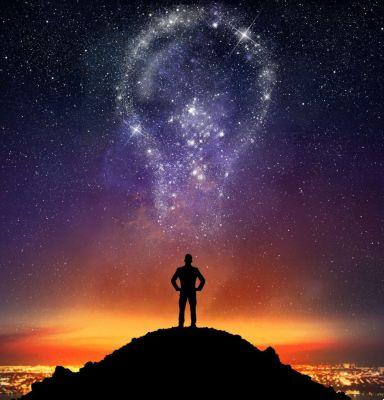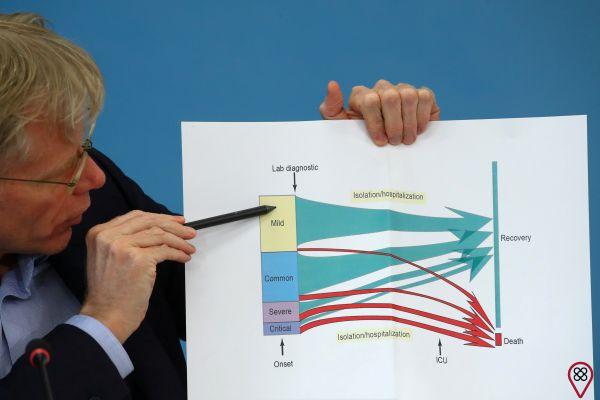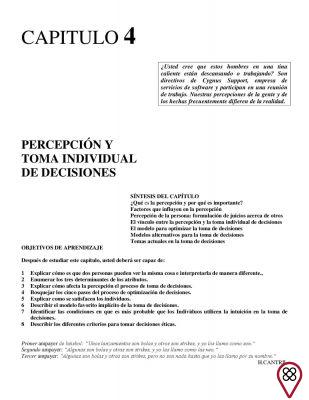All of us, as thinking beings, struggle with existential, knowledge or logic issues that affect us in a certain way, albeit to different degrees.
The intellectual lives in a world that can be hard on him. A world a little lonely and lacking sharing. It's wanting to express your ideas and feeling that no one is really interested, or realizing that many don't understand or internalize them with the same logic or with the same speed.
It is difficult not to have someone to dialogue with and to be understood and responded to in an even way; it is difficult not to feel that there is an effective and solid sharing. These issues can make people more intelligent, lonely beings choosing (consciously or not) to have few friends, as most people do not understand them or end up getting in the way of achieving their goals.

The point here is that few people will actually be able to penetrate your world and walk alongside you. The intellectual's mind is elusive and unaccompanied, as if it were cut out to walk alone in paths that many do not want to tread.
Learning to filter these differences brings us suffering for having to deal with our doubts and uncertainties.
“The intellectual frees himself from the moment he is aware that he is more intelligent than most people.”
Reality must be assumed exactly as it is. This process does not make someone less humble or more arrogant, but rather admits the truth of the situation without it weighing him down. It is an acceptance process.
Taking ownership of yourself increases the chance of improving ourselves. When we assume that we ignore certain knowledge, we are already, in a way, putting cognition into operation, in the search for a solution. Bringing information, increasing creative potential and expanding knowledge.

Having the ability to recognize that you don't know everything and always trying to learn more, demonstrating your thirst for knowledge is the basis of intellectuality. For the intellectual, when a certain subject is not in his domain, this does not make him aggressive or irritated, it works rather as a search lever so that later he can debate the subject and have the ability to argue and position himself. It's living with the notion that the awareness you have about things is not the same as most, it's thinking and deconstructing realities that not everyone has access to.
“To be intellectual is to be curious, humble and observant.”
On the other hand, there are many people who think they are right within a non-existent reason, a created reason, and justify their thoughts and actions with illogical reasoning, not understanding or accepting when someone shows them otherwise.
When the obvious evidence is laid out before them, they still try to come up with justifications for something that is proving not to be what they think. They are people incapable of giving plausible arguments about the issue and instead of discussing and trying to articulate a thought, these people are offended and get out of touch. They don't have the ability to listen.

People who have an intellectual, cognitive limitation, when they don't have theoretical training or information, don't have the intuition of matrix intelligence and so they deny it. In denying the information of what the other says, they create a shell, a shield against the humiliation that it is for the other to have knowledge. But this type of reaction only gives a false sense of protection, when we must do the exact opposite: listen to the opinion of the other, open our minds and enrich our own vision of the world with other ideas and points of view and thus broaden horizons.
The discussion must allow the creation of the third point of view based on the dialogue. Two divergent opinions that work to create a third where they converge. When there is no capacity for discussion, the denial process enters. The knowledge of the other is denied and, essentially and especially, the possibility of learning and absorbing knowledge is denied, thus crystallizing its cognitive limits.
For someone who is positioned in the opposite direction, it becomes extremely disturbing that people act this way. There are still people who speak without having extensive knowledge about the topics. When you don't know, we have only one valid and enriching option: talk, listen, discuss the topic knowing the limits of your own knowledge and, in the end, draw your conclusions based on valid discourses and information.

For intellectuals, the notion of the lack of knowledge and logic of most people, and the lack of one of them inevitably interferes with the other, can be a disorder.
When the perspective on the experience is seen through the prism of someone with above-average abilities, details are very important. They make a difference. The parts are always “greater” than the whole.
The intellectual knows the limit of the other and shocks him when that someone does nothing to overcome it. Conformism kills.
We are not all the same in the way we think about the world, and facing this as a reality helps in our positioning. We will be better at all levels with ourselves and in treating and understanding others.
“A person with a high IQ (logical intelligence), and without any deviation that could affect their intellectual breadth, can improve their emotional intelligence (EQ) as their logical intelligence will give the rationality to achieve behavioral improvement.”
There is an example that I can use to demonstrate this issue of awareness of reality and the differences that mark us.
Let's imagine that we are in a movie theater. There are those who come in and focus on the movie that is on the screen. Just it. On the other hand, there are those who enter and observe the space, watch the film, pay attention to the reactions and expressions of the people who share that same place and experience with it, as well as perceive the message of the film and all the nuances that exist in it in the smallest details. The whole experience is fuller as the symmetry of the place is repaired.
Perspectives are different and people function differently. We cannot demand and want everyone to have the same capacity for observation and absorption.
Here comes acceptance. Know how to understand the differences. Knowing that sometimes there are people who see beyond the majority, think and rationalize more than most, that the obvious is not always so obvious, and that the logic by which they are governed is not within everyone's reach.
You may also like
- Learn about Gardner's theory of multiple intelligences
- Discover what emotional intelligence is
- How are very smart kids?
Finally, the maximum exponent is to unite wisdom and use to its fullest extent the intellectuality and intelligence that is born with us. To unite our innate intelligence to a constant search for knowledge, to absorb information. The cultivation of the intellect to have a base, to know how to position oneself, to know oneself and the other. Be our best version. Looking for new updates that allow a more refined cognitive functioning and in tune with the best we have: knowledge.
The Mensa association of the world's smartest people found that only 2% of the world's population have a percentile greater than 98, considering them as gifted.

























